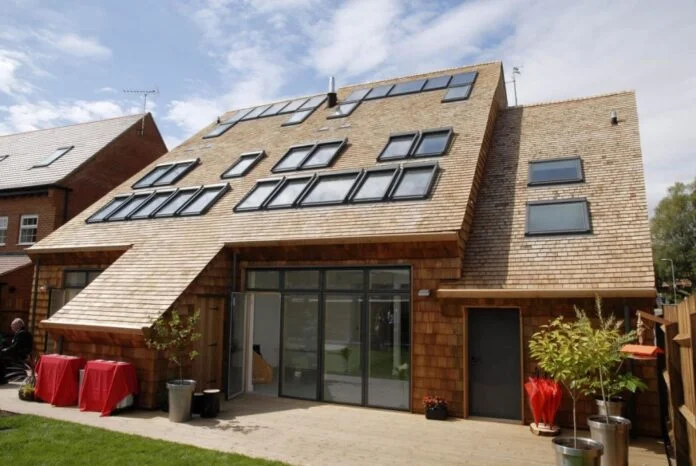Energy-efficient upgrades are increasingly crucial for homeowners seeking to enhance the overall value of smart and sustainable living. These upgrades offer a range of benefits, including reduced energy costs and improved comfort for residents.
By optimizing the performance of appliances and systems, energy-efficient upgrades contribute to better physical and mental health.
With the rapid changes in technology and the growing demand for sustainable living, the concept of integrating energy-efficient upgrades into our homes is an important consideration that can be seen in many homes built in smart housing societies like soul city in Lahore.
In this article, we have narrowed down the hows, whys, and whats of energy-efficient upgrades in our homes to make the process easy for you.
Analyzing the Need for Energy-Efficient Upgrades
Conducting an Energy Audit
To determine the need for energy-efficient upgrades, homeowners can conduct an energy audit. This involves evaluating energy consumption patterns, identifying areas of waste, and analyzing utility bills for irregularities. By assessing lighting and appliance usage, homeowners can pinpoint areas where energy is being inefficiently consumed.
Evaluating Lighting in Your Home
As part of the energy audit, it is essential to evaluate lighting throughout the home. Inefficient lighting, such as outdated incandescent bulbs, can be replaced with energy-saving LED lights. LED lights consume less energy, have a longer lifespan, and provide the same level of brightness.
Monitoring Utility Bills
Regularly monitoring utility bills is crucial for understanding energy usage trends and identifying any unexpected fluctuations. By examining bill patterns, homeowners can gain insights into energy consumption and detect any inefficiencies that need attention.
Measures to Make Your House Energy Efficient
Insulation for Temperature Control
One of the most significant steps in achieving energy efficiency is ensuring proper insulation. Insulating walls, ceilings, and floors minimizes heat transfer and maintains indoor temperatures. Proper insulation reduces the need for excessive heating or cooling, leading to energy savings and enhanced comfort.
Energy-Efficient Lighting
Replacing inefficient lighting with energy-saving alternatives is an effective way to improve energy efficiency. LED lights are highly recommended as they consume less energy and have a longer lifespan compared to traditional incandescent or fluorescent bulbs.
Smart Thermostats for Automated Control
Smart thermostats offer precise control over temperature settings, allowing homeowners to optimize energy usage based on their preferences and daily routines. These thermostats can automatically adjust temperature settings when residents are away, reducing energy waste.
Energy-Efficient Appliances
Upgrading to energy-efficient appliances significantly reduces energy consumption without compromising performance. Appliances with ENERGY STAR certification are designed to consume less energy while maintaining the same level of functionality.
Harnessing Renewable Energy
Installing renewable energy systems, such as solar panels or wind turbines, can provide substantial energy savings in the long run. These systems generate clean energy from renewable sources, reducing reliance on traditional power grids and decreasing their environmental impact.
Benefits of Home Energy Efficiency
Cost Savings
Energy-efficient upgrades lead to reduced energy consumption, resulting in lower utility bills. Over time, homeowners can save a significant amount of money on energy costs, making their investments in energy-efficient upgrades financially rewarding.
Increased Comfort and Safety
Energy-efficient upgrades enhance the overall comfort and safety of a home. Proper insulation ensures consistent temperatures throughout the year, eliminating drafts and cold spots. Enhanced comfort contributes to a more enjoyable living environment. Additionally, energy-efficient upgrades often involve the use of modern, safer technologies that reduce potential hazards.
Environmental Friendliness
Energy-efficient upgrades significantly reduce energy consumption, leading to a reduced carbon footprint. By decreasing their reliance on non-renewable energy sources, homeowners contribute to the preservation of natural resources and mitigate their environmental impact.
Long-Term Value
Energy-efficient upgrades add long-term value to a property. Homes with energy-efficient features have a higher resale value and appeal to environmentally conscious buyers. Investing in energy efficiency not only benefits homeowners in the present but also pays off in the future.
Improved Indoor Air Quality
Energy-efficient upgrades often involve improvements in ventilation and air circulation systems. These enhancements promote better indoor air quality, reducing the presence of pollutants, allergens, and potential health risks.
Preservation of Natural Resources
By reducing energy consumption, energy-efficient upgrades help conserve natural resources such as fossil fuels, water, and raw materials used in energy production. These conservation efforts contribute to a more sustainable and responsible use of resources.
Enhanced Property Value
Energy-efficient homes are in high demand and often attract higher property values. The market recognizes the value of energy efficiency, and potential buyers are willing to pay a premium for homes that offer long-term cost savings and environmental benefits.
The Impacts of Energy Efficiency on the Environment
Reduced Air Pollution
Energy efficiency measures significantly reduce carbon emissions and air pollution. By consuming less energy from fossil fuel sources, homes contribute to cleaner air and improved overall air quality.
Conservation of Natural Resources
Energy-efficient upgrades help minimize the consumption of non-renewable resources such as coal, oil, and natural gas. These conservation efforts ensure the preservation of natural resources for future generations.
Improved Air and Water Quality
Energy efficiency initiatives indirectly contribute to better air and water quality. Reduced energy consumption translates to fewer emissions from power plants, resulting in cleaner air. Additionally, by decreasing water usage through efficient appliances and systems, energy-efficient homes alleviate stress on water resources.

